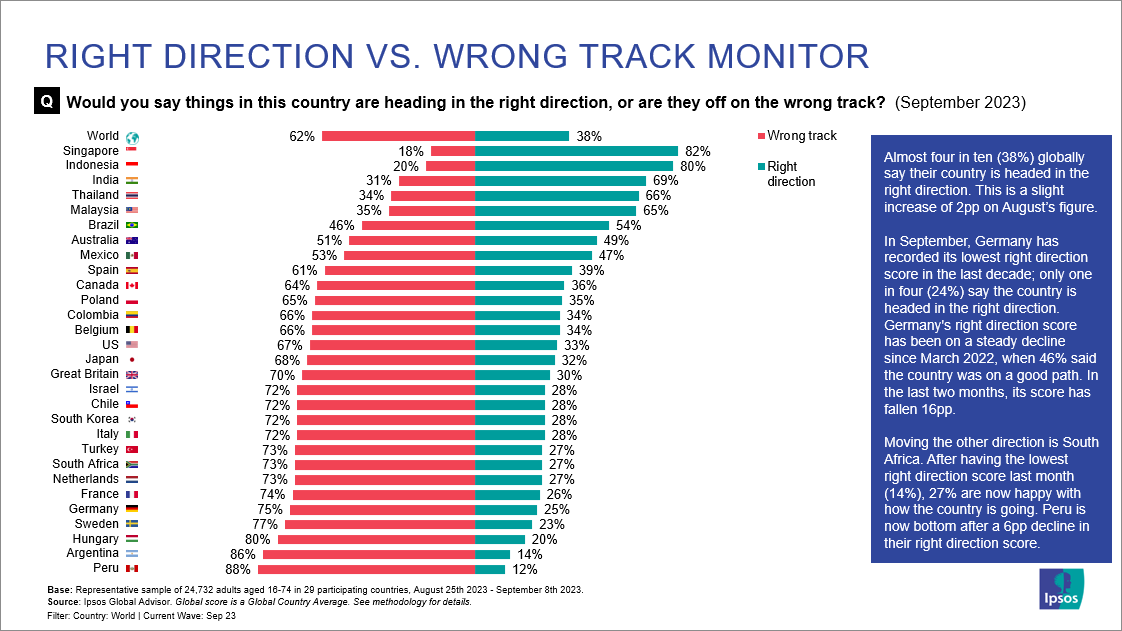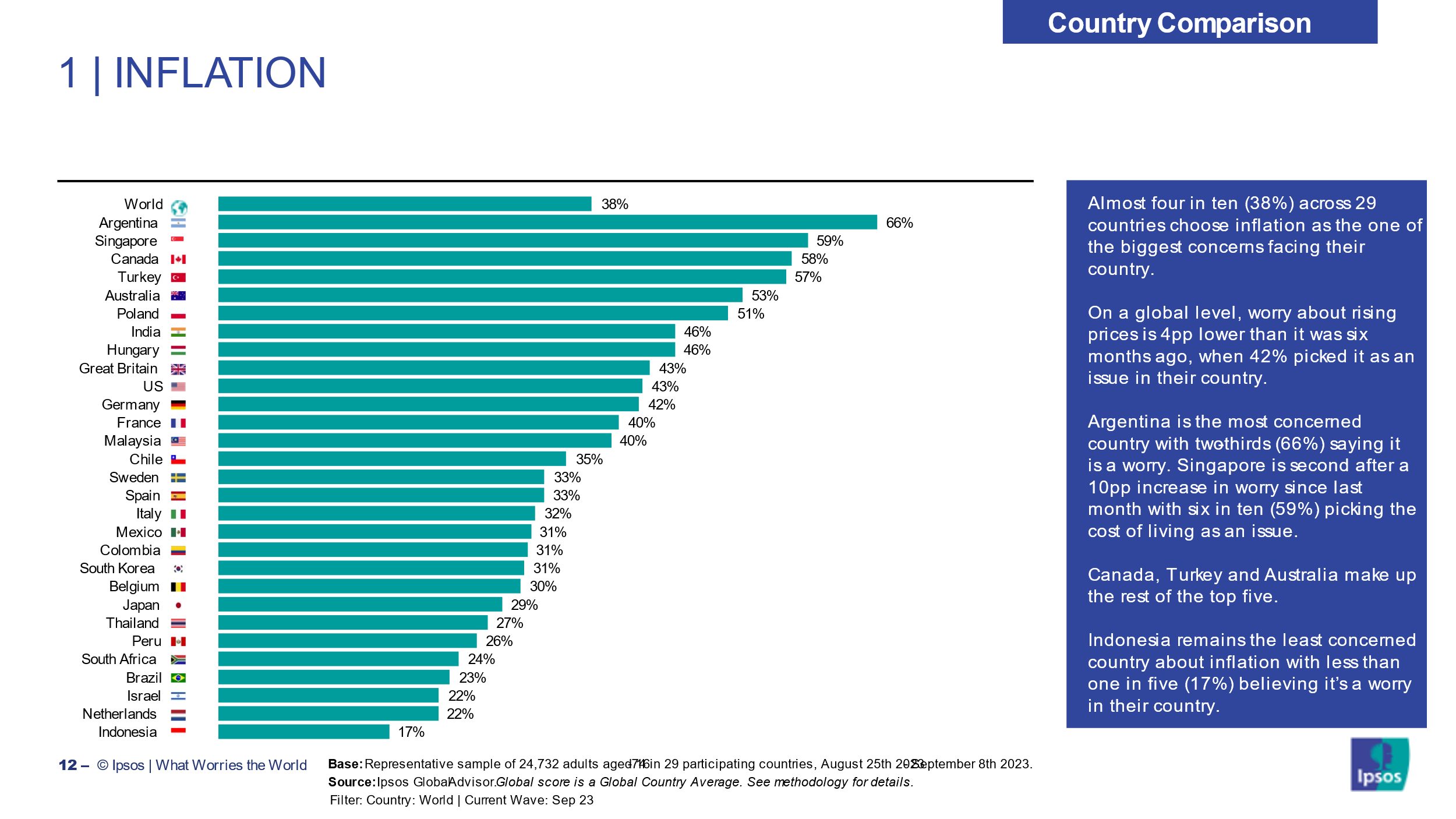Mumbai: The September wave of the Ipsos What Worries the World Global Survey shows global south is driving optimism with Asian markets being most optimistic. Ipsos India was placed 3rd in the pecking order, after Singapore (82 per cent) and Indonesia (80 per cent). The other optimistic Asian markets being Thailand (66 per cent) and Malaysia (65 per cent).
Global citizens on the contrary were more pessimistic with only 38 per cent believing their country is moving in the right direction. Notably, India has moved up five points in optimism in September from the August wave and global citizens too have moved up by two per cent.
Ipsos What Worries the World tracks public opinion on the most important social and political issues, alongside whether people think things in their country are heading in the right or wrong direction, across 29 countries and among 24,733 adults globally and shows interesting findings for India.

What worries Indians and global citizens?
Urban Indians’ top worries were inflation (46 per cent), unemployment (39 per cent), crime and violence (28 per cent), financial and political corruption and poverty and social inequality (18 per cent). Top concerns of global citizens were inflation (38 per cent), crime and violence (32 per cent), poverty and social inequality (31 per cent), financial and political corruption (26 per cent) and unemployment (26 per cent).
Inflation remains top most global worry.

And interestingly, global and local top five worries are the same though not in the same order.
Ipsos India CEO Amit Adarkar said, "India continues to be a highly optimistic market with its urban citizens strongly of the view that we are headed in the right direction as a country. This is in sync with actual reality as India is the 5th largest global economy and despite the polycrisis unfolding globally and its impact on global economy, we continue to grow economically and are seen as a country attractive for pumping in more investment by global investors and we are also driven a lot by domestic consumption, being the world’s most populous nation that is also optimistic about spending. Though inflation and unemployment are the top two worries in India, urban Indians are much less worried on these as compared to global peers. Also, food inflation has started coming down and unemployment has seen a sharp downturn. These, coupled with the upcoming festival season, should hopefully bring more cheer."
Methodology
This 29-country Global Advisor survey was conducted between August 25th 2023 and September 8th 2023 via the Ipsos Online Panel system among 20,570 adults aged 18-74 in Canada, Israel, Malaysia, South Africa, Turkey and the United States, 20-74 in Indonesia and Thailand, 21-74 in Singapore, and 16-74 in all other nations.
The “Global Country Average” reflects the average result for all the countries where the survey was conducted. It has not been adjusted to the population size of each country and is not intended to suggest a total result. The sample consists of approximately 1000+ individuals in each of Australia, Belgium, Brazil, Canada, France, Germany, Great Britain, Italy, Israel, Japan, Mexico, Spain, Sweden, and the US, and approximately 500+ individuals in each of Argentina, Chile, Colombia, Hungary, India, Indonesia, Malaysia, the Netherlands, Peru, Poland, Singapore, South Africa, South Korea, Thailand and Turkey. The samples in Argentina, Australia, Belgium, Canada, France, Germany, Great Britain, Hungary, Italy, Japan, the Netherlands, Poland, South Korea, Spain, Sweden, and the US can be taken as representative of these countries’ general adult population under the age of 75. The samples in Brazil, Chile, Colombia, India, Indonesia, Malaysia, Mexico, Peru, Singapore, South Africa, Thailand and Turkey are more urban, more educated, and/or more affluent than the general population. The survey results for these markets should be viewed as reflecting the views of the more “connected” segment of these populations.
Weighting has been employed to balance demographics and ensure that the sample’s composition reflects that of the adult population according to the most recent census data. The precision of Ipsos online polls are calculated using a credibility interval with a poll of 1,000 accurate to +/- 3.5 percentage points and of 500 accurate to +/- 5.0 percentage points. For more information on the Ipsos use of credibility intervals, please visit the Ipsos website. Where results do not sum to 100 or the ‘difference’ appears to be +/-1 more/less than the actual, this may be due to rounding, multiple responses, or the exclusion of don't knows or not stated responses.






